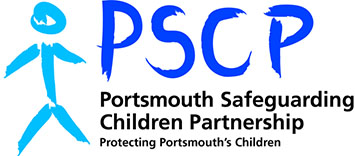Private fostering
Private fostering is the term used when someone who is not a parent or a ‘close relative’ is looking after a child or young person under the age of 16 (under 18 if they are disabled). A close family relative is defined as a ‘grandparent, brother, sister, uncle or aunt’ and includes half-siblings and step-parents; it does not include great-aunts or uncles, great grandparents or cousins
It involves an arrangement made without the involvement of the local authority between the carer and the child’s parent/s or person with parental responsibility and that arrangement is intended to last 28 days or more (the child is not a Looked After Child).
Unfortunately, when we think of private fostering we often think of Victoria Climbié. However, a private fostering arrangement can be a positive response from friends and the local community to a family in need of support.
Most frequently, young people are in private foster care for the following reasons:
- children from other countries sent to live in the UK with extended family
- host families for language schools
- parental ill-health
- where parents who have moved away, but the child stays behind (e.g. to stay at the same school to finish exams)
- teenagers estranged from their families
The Ofsted report into Private Fostering also refers to these reasons:
- children brought from outside the UK with a view to adoption
- children at independent boarding schools who do not return home for holidays and are placed with host families
- trafficked children
Examples of private fostering are:
Molly (14) has had an argument with her mother and has gone to stay with her friend Lilly. Lilly’s parents are willing to look after Molly. Molly does not intend to return home at this time as relationship with parents is severely broken down. This is a private fostering arrangement.
Dan (16) has a learning difficulty. His relationship with his parents has broken down and they have asked him to leave. Dan is staying with his girlfriend’s family who are willing to look after him long-term. This is a private fostering arrangement.
Mya (2) is living with her great aunt. Mya’s mother has significant mental health issues and is unable to provide care to Mya and has made this arrangement to keep Mya safe. This is a private fostering arrangement.
Caroline (14) is a student from China. She has come to the UK to attend an English school and take her exams. Caroline will remain with her host family for one year. This is a private fostering arrangement.
As you can see from the examples above (taken from previous cases) private fostering is wide ranging and can happen to children and young people of all ages.
There are some signs that may indicate a child is being privately fostered.
In the neighbourhood:
- A child not previously known suddenly starts living with a neighbour;
- A child who lives in the neighbourhood suddenly disappears;
- A neighbour has a number of different children staying with them.
At school, in an early years setting, or youth club:
- A parent has a ‘niece’ or ‘nephew’ staying with them for a while;
- A child suddenly disappears without warning;
- A child says they are staying with a friend or relative, or even a stranger;
- A child says that there is another child staying at home with them.
In the doctor’s surgery or at a health clinic:
- A patient attends with a child who has not been seen before;
- A patient attends regularly with different children who they refer to as their ‘niece’ or ‘nephew’;
- A child mentions that the person they are with is not their parent.
Because these arrangements are made privately, many of them are ‘hidden’ and the local authority in that statutory agencies are not aware of them. If you think you have identified an arrangement please call us on 02392 834071 and ask to speak to Aimee or Koren or contact Portsmouth MASH to discuss further.
By law, the local authority where the private foster carer lives must be told about all private fostering situations.
Each party involved in the private fostering arrangement (e.g. child’s parents, private foster carer and anyone else involved in the arrangement) has a legal duty to inform the relevant local authority at least six weeks before the arrangement is due to start. Not to do so is a criminal offence.
All professionals (e.g. GPs surgeries, schools etc.) also have a responsibility to report to the local authority where they are aware or suspect that a child is subject to a private fostering arrangement
Once the notification has been made to the authority, children’s services have a duty to visit and speak to the child, the parent and the foster carer; and everyone in the foster carer’s household. Children’s services will then undertake a range of suitability checks including DBS checks on everyone in the household over the age of 16.
Worried about a child – If you are concerned that a child or young person has suffered harm, neglect or abuse, please contact Portsmouth Multi Agency Safeguarding Hub (MASH)
If a child is at immediate risk of harm, call the Police on 999
- Children Act 1989: private fostering
- The Children (Private Arrangements for Fostering) Regulations 2005
- Private Fostering poster– please print this off and display on notice boards to help raise awareness
- Private Fostering leaflet – produced by Portsmouth’s Private Fostering Team
